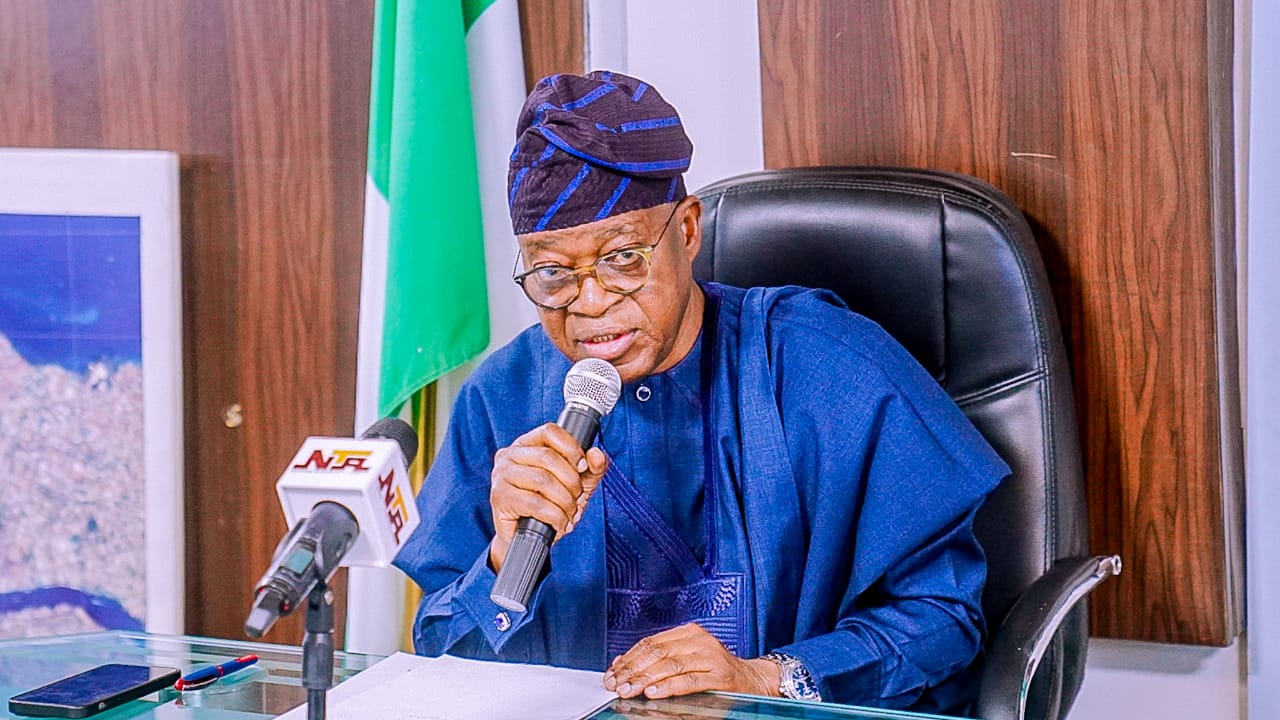Nigeria is on her way to achieving self sufficiency in the fishery and aquaculture sector. This, according to Alhaji Adegboyega Oyetola, the Minister of Marine and Blue Economy (FMMBE), is the target of the removal of the department of fishery and aquaculture from the ministry of agriculture and food security to the the ministry of blue economy.
This is in the background of the revelation by the National Bureau of Statistics that the country imports mackerel (locally called titus or alaran), herrings (locally called shawa), horse mackerel (locally called kote), blue whiting (locally called panla), Argentina silus (locally called ojuyobo), and the popular croaker fish.
Addressing the president’s mandates to achieve self-sufficiency in fish production and expand Nigeria’s role as a major exporter of fish products, Oyetola said was a clear indication of the transfer of the Department of Fisheries and Aquaculture from the ministry of agriculture to marine and blue economy.
According to the statement by the Head, of Press and Public Relations FMMBE, Muhammad Zakari, the minister gave the pledge at the 39th annual national conference and general meeting of the Fisheries Society of Nigeria (FISON) in Abuja.
The summit was themed, “Unlocking the investment potential of Nigeria’s blue economy: Advancing the fisheries and aquaculture sector for sustainable development”.
Oyetola said, “The theme of this year’s conference is very significant as it aligns with Mr President’s vision for sustainable economic diversification, highlighted in the agenda and creation of the Ministry of Marine and Blue Economy.
“This itself has been enforced in the recent transfer of the Department of Fisheries and Aquaculture to the Ministry of Marine and Blue Economy.
“This development is significant as it places all issues merited to fisheries administration and related activities under the direct supervision of the ministry.
“The establishment of this ministry marks the beginning of a new era for the fisheries and aquaculture sub-sector. In alignment with Mr President’s vision for the sub-sector, the ministry is committed to achieving self-sufficiency in fish production and positioning Nigeria as the major exporter of fish and fisheries products.
“The ministry is also embarking on various initiatives tailored towards fisheries management, boosting investment of fisheries and aquaculture development, improving post-harvest infrastructure, promoting innovation, leveraging technology and fostering multi-stakeholders collaborations”.
Otetola pledges to tap into the full spectrum of the nation’s marine resources as the sub-sector holds great potential to increase food production, create job opportunities, and enhance economic development for Nigerians.












